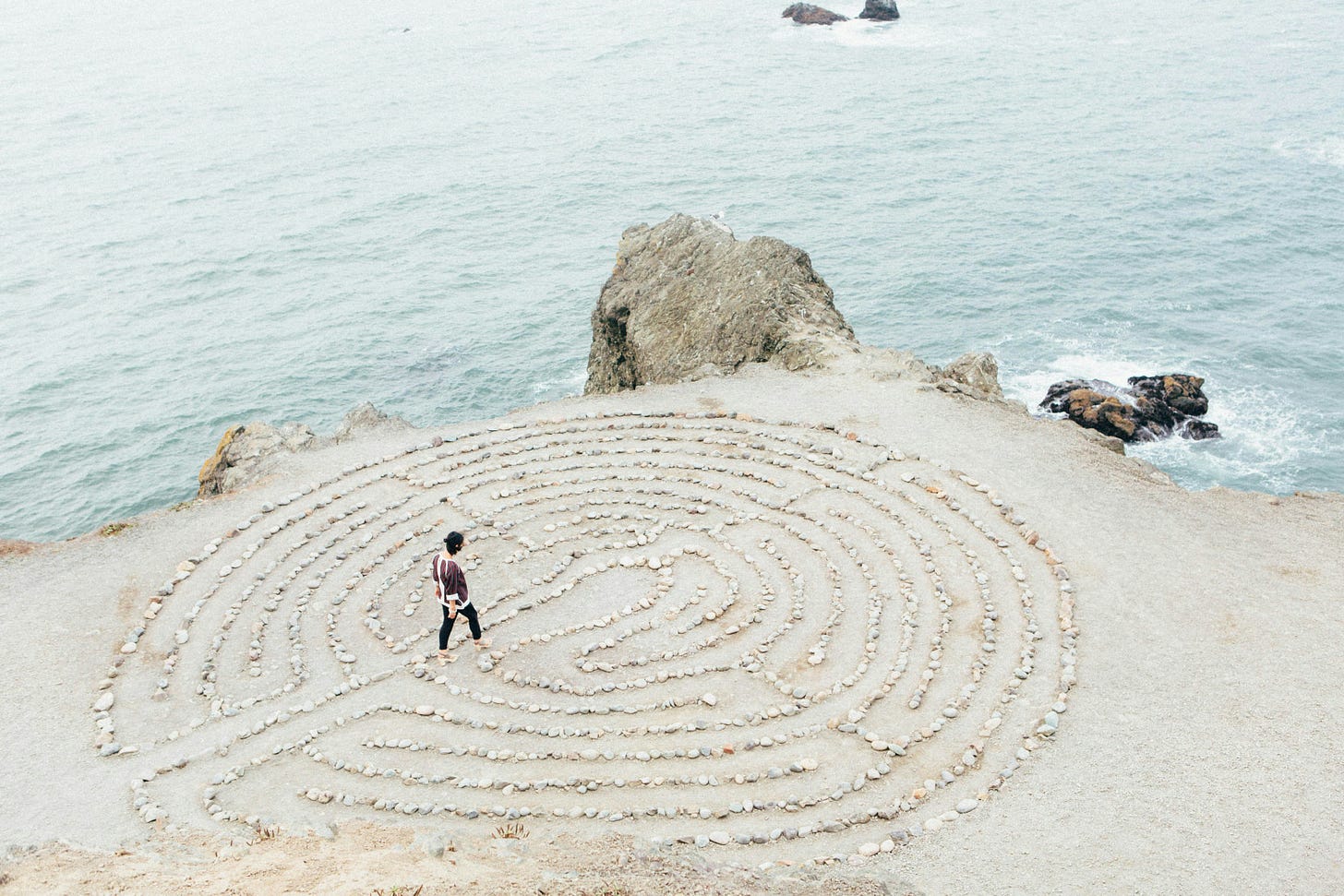Part of our human development requires maturation of the ego, as in…a healthy and realized sense of self that allows us to show up in the world believing we have gifts to share with the community. The problem is when we swim in the callous seas of capitalism, community becomes a disenfranchised human need. The ego, in turn, is disproportionately engaged and competition is now the predominant mode of existence.
How do we work against this affliction?
How do we endeavor for the expansive rather than dulling our world at the whims of modern empire?
(Here’s the link to Eugene’s full post on Threads.)
As Kim articulates so well, the most sacred parts of us are non-competitive.
And yet, it seems there are so few spaces we can exist non-competitively1.
Workplaces. Religious institutions. Social media. The commons of our shared existence have been infiltrated and are rife with dehumanization.
So, too, our rights as painters, poets, and dancers. Consider these words about our creative endeavors from author Rick Rubin:
Art is about the maker.
Its aim: to be an expression of who we are.
This makes competition absurd. Every artist's playing field is specific to them. You are creating the work that best represents you. Another artist is making the work that best represents them. The two cannot be measured against one another. Art relates to the artist making it, and the unique contribution they are bringing to the culture.2
Competition of art? A contradiction of worlds. Absurd.
Church and its rubrics of power and control? Same story.
One of the norms I found so painful in previous faith contexts was, again, the neurotic myth of competition: the egotism of quantifiable spiritual engagement or worship, and its subsequent hierarchies.
In our day of celebrity / influencer, you can find the seeds of competitive contamination sown almost everywhere.
Regardless of the setting, here are three ways I have observed how competition defames the sacred in us:
In a capitalistic world, competition compels us to keep producing while simultaneously feeding our belief of scarcity. I need to outperform this person. There’s not enough room for all of us. I can’t go up unless they go down.
Competition undermines the privilege of bearing communal witness to one another’s healing, fidelity to life, and sorrow. If you’ve ever been part of a faith community or group that felt vaguely empty, this may partly explain why. We are meant to be companioned, not compared or controlled.
Competition poisons our concepts of God. It suppresses the imagination of love and transcendence. It projects ranked and conditional standing onto our humanity, rather than dignity.
The notion of competitive “community”, or art, or ritual—is the root of many painful relational ruptures. One of the signs of mature and generative spirituality, then, is learning to live receptively rather than competitively.
In my first job as a pastor several years ago, it didn’t take long to realize I was required to assimilate to a non-receptive church culture. At the leadership level, there was hardly a trace of curiosity about my story, my background, prior hardship, or any wisdom I had attained that might serve the community. Instead, it was one-directional revelation and my task was to vow loyalty and labor to the tenured authority figures, so as not to be perceived as a threat.
Competitive spirituality, which assumes conditional acceptance, replaces the beauty of soulful encounter with egotistical structures of belonging—our numerical and reductive un-knowing. Those structures will always make us sick.
I want to acknowledge that systemic injustice exacerbates the problem of competition. When there is no equal playing field, many marginalized groups are only left to protest and fight for basic human rights. To condemn white supremacy, for example, is not an act of competition but a denunciation of evil.
Rubin, R. (2023). Non-Competition. In The Creative Act: A Way of Being (pp. 237–237). Penguin Press.






A chronic issue across workplaces, social media, and really, everywhere. Thank you so much for calling attention to this!
Ryan,
Your posts are always spot on brother.
The Lord has truly blessed you with wisdom and insight about these hurtful situations.
I am glad we met as it has helped me to process a lot of these awful interactions.